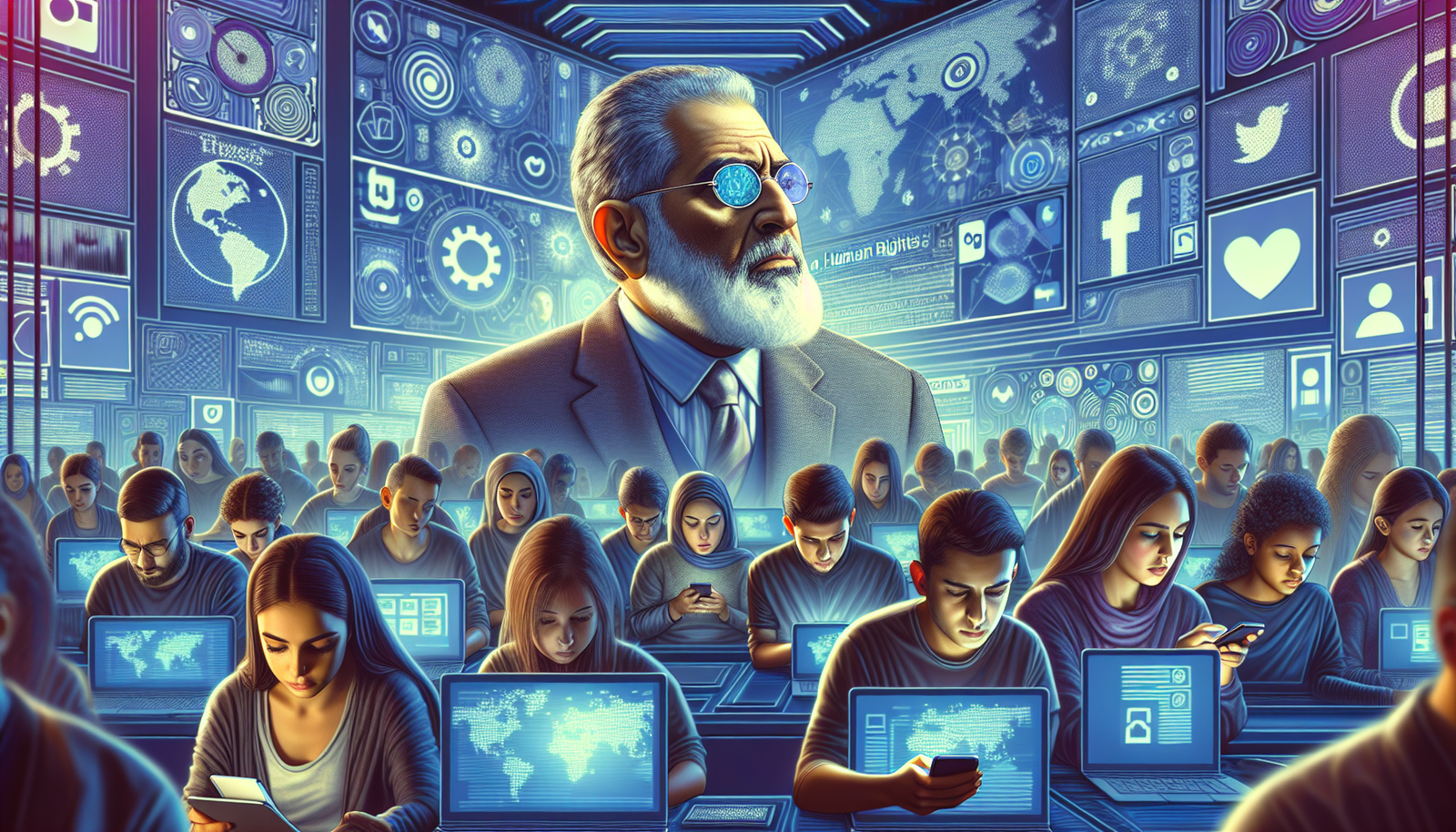The indifference of technology giants towards human rights raises pressing questions. The collision between technological power and social responsibility challenges every citizen. The irresponsibility of large corporations exacerbates violations of fundamental rights, making ethical issues more relevant than ever.
*Systemic abuses* within digital platforms destroy trust. Companies, focused on their profits, often sacrifice ethics on the altar of technological progress. The issue goes beyond simple regulation; it demands a profound reflection and a bold commitment to defend humanity.
This panorama highlights the urgency of effective regulation to preserve our reality against *the overwhelming force* of these multinationals.
Technology giants: manifest indifference
The rise of technology companies raises deep questions about human rights. These giants, often perceived as being at the forefront of innovation, frequently appear unconcerned about the implications of their practices. Indifference towards fundamental rights has been revealed through multiple scandals and abuses. The massive collection of personal data occurs without the informed consent of users.
Affecting social vulnerabilities
Social inequalities and human vulnerabilities are exacerbated by the policies of technology companies. These practices favor skyrocketing profits at the expense of the living conditions of many citizens. For example, communities, often on the margins, suffer from misinformation disseminated on social networks. The algorithms, often biased, accentuate polarization and prevent genuine democratic debate.
Data and surveillance
Digital giants, such as social networks, play a central role in a global surveillance system. The reality of pervasive surveillance is striking: most users are unaware of the extent of data collection. This phenomenon engenders a form of social control that undermines individuals’ autonomy, reducing them to mere consumer products.
Necessary and urgent regulation
Proper regulation is essential to contain the abuses perpetrated by technology companies. Current legislation often remains inadequate in the face of the rapid evolution of the sector. Governments must develop rigorous policies to protect citizens’ rights against systematic breaches. Initiatives for data protection, such as GDPR in Europe, lay the groundwork for necessary ethical reflection.
Ethics in the face of technological advancements
Advances in the field of artificial intelligence (AI) raise significant ethical challenges. The consequences of automated decisions can be devastating for individuals, especially for the most vulnerable. The stakes related to the use of algorithms affect not only individual lives but also society as a whole. Technological actors must assume increased moral responsibility.
Action perspectives
Social actors must mobilize for strict and ethical regulation of technology. Alliances between businesses, governments, and NGOs can promote an ethical framework conducive to respecting human rights. Continuous vigilance is required to ensure that technologies serve the common good and do not become a tool of oppression.
Additional information
To explore these issues further, in-depth articles analyze the practical implications of the interaction between artificial intelligence and human rights. Relevant links provide information on current debates, such as: Return of Sam Altman to OpenAI, Legal challenges in the gaming sector, Reflections on chatbots and ethics, Possibility of surpassing human intelligence and Impacts of AI in the film industry.
Frequently asked questions about Peter Kirchschläger and technology giants
What are the main ethical concerns raised by Peter Kirchschläger regarding technology giants?
Peter Kirchschläger emphasizes that large technology companies often show indifference to potential violations of human rights, particularly regarding data protection, user exploitation, and ethical commitment.
How does Peter Kirchschläger justify the need for strict regulation for technology companies?
He argues that without regulation, abuses are frequent, worsening power imbalances between technology giants and individuals, which can lead to violations of fundamental human rights.
What role does Peter Kirchschläger play in the debate on digital ethics?
As a professor of ethics, he actively participates in raising awareness among decision-makers and the public about issues related to human rights and encourages dialogue on ethical practices within technology companies.
What examples does Peter Kirchschläger use to illustrate violations of human rights by technology giants?
He cites cases of mass surveillance, failures in the protection of personal data, and biased algorithms affecting minority groups as manifestations of these violations.
How can Peter Kirchschläger’s research influence current technology policies?
His research aims to establish a solid ethical basis to guide the creation of policies that protect human rights while promoting ethical technological innovation.
What are the potential impacts of ethical decisions by technology giants on society?
The ethical decisions made by these companies can shape societal norms, influence public trust in technologies, and determine the balance between security and individual freedom.
How can consumers become more engaged in protecting their rights against technology giants?
Consumers can educate themselves on privacy policies, choose services that respect their rights, and participate in movements advocating for responsible technology use.
What challenges does Peter Kirchschläger face in promoting digital ethics?
He often confronts powerful economic interests, a lack of awareness among the general public, and political resistance to implementing proposed regulations.






